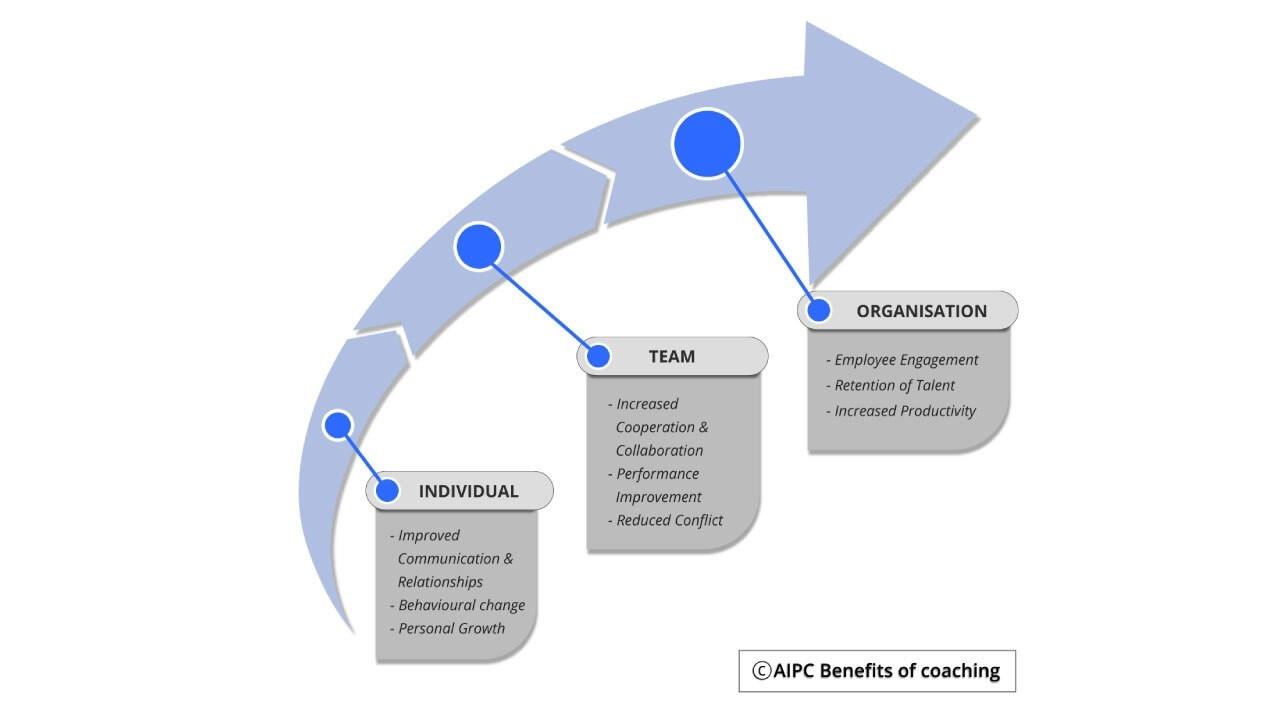Benefits of Coaching

People who are focused and goal-driven rarely stop to contemplate the workings of their inner selves. Coaching provides them with the opportunity to pause so that they can ponder the effect of their words, behaviours and decisions on people around them especially those with whom they work. Their enhanced self- and social-awareness paves the way for the integration of individual needs with family, work, social and organisational needs. For example, within a work environment, coaching aims to align individual aspirations with organisational values and business goals. When all employees are aligned, cultural and transformational change, beneficial to the organisation, emerges.
Coaching offers significant positive benefits to individuals, teams and organisations because it is such a powerful intervention for personal and professional growth. The benefits may be tangible or intangible, explicit or implicit, immediately obvious or long-term in their revelation. Each coaching session aims to assist clients develop self-awareness and insight into their situation and behaviour, so that they can determine more appropriate ways of responding to solve their problems and achieve their goals. Measuring the return on investment from coaching gives organisational leaders the data they need to make important decisions about expanding coaching into the whole of the organisation to achieve cultural change.
Coaching is a process that occurs over time to bring about desired outcomes within a trusting, partnered relationship between the coach and client. Some benefits of coaching are immediately obvious e.g. changes in client behaviour. Other benefits may take longer to materialise, especially if other people are involved e.g. becoming more motivated at work. It’s important that at the end of each coaching session, the coach action plans with the client to have them do something differently, no matter how small, that will make an immediate change in their life for the better. These are tangible benefits to show that the coaching session has been successful. Tangible benefits are observable and quantifiable, either positively or negatively, and may include:

Intangible outcomes are those that are not behaviourally visible. They may take longer to manifest because the client is thinking through the coaching conversation and making meaning of the insights gained during the coaching session. For example, the client may have become more self-aware of their actions and the consequences for themselves and others. They may come to realise that the way in which they have been behaving is not working for them and needs to change. As a result, they work with the coach to explore other ways of relating to people at home, at work and in the community at large. The benefits that accrue to them are intangible until they become represented in real time as definite, tangible benefits, e.g. better communication and relationships with family and colleagues; increased self-confidence; more effective self-management; increased motivation to work as a result of greater job satisfaction and stronger organisational commitment. Studies have found that in most cases the intangible behavioural changes in an individual e.g. changed mindset, have more far-reaching positive effects in their lives and in the workplace than the more immediate tangible changes.
This modified excerpt is taken from the book “Positive Psychology Coaching” by Dr Susanne Knowles which is available from www.amazon.com and www.barnesandnoble.com.
Book Reviews and a Book Trainer are available on www.susanne.knowles.com.


